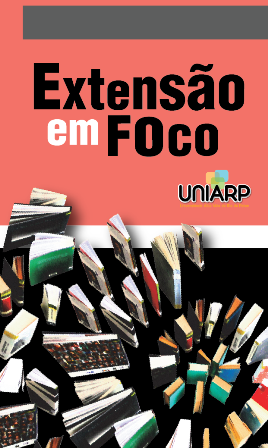EDUCAÇÃO A DISTÂNCIA: A AUTONOMIA NA GESTÃO DO PRÓPRIO DESENVOLVIMENTO INTELECTUAL
Palavras-chave:
Educação a Distância. Autonomia. Desenvolvimento intelectual.Resumo
A autonomia de estudo consiste basicamente no potencial do educando de refletir sobre o seu aprendizado, assumindo, por si mesmo, a responsabilidade pelo seu desenvolvimento. É função dos educadores atuar junto ao aluno, auxiliando-o na responsabilidade, orientando-o e acompanhando-o no desenvolvimento dos seus estudos, no sentido da aquisição de estratégias de aprendizagem. Para desenvolver essa autonomia é necessário que o educador, por meio da relação pedagógica, exerça a atividade primordial de provocar a atividade do aluno. É importante partir das representações dos alunos, não restringir a didática das aulas à metodologia expositiva e mobilizar os mesmos para o conhecimento, objetivando o vínculo significativo entre o sujeito e o objeto. A questão do desenvolvimento da autonomia de estudo se aplica tanto ao ensino a distância como ao ensino normal, pois para propiciar uma formação integral ao ser humano, é essencial que a educação promova meios que não se restrinjam ao desenvolvimento da capacidade de memorização, mas também ensinem o indivíduo a conviver com os demais, a perceber interdependência e a exercer o pensamento de forma autônoma. Assim, por intermédio do incentivo da autonomia de estudo é possível formar verdadeiros cidadãos autônomos, capazes de lutar por seus objetivos e pela transformação das condições sociais, lutando pelo respeito aos seus e pelos direitos dos demais.
Palavras-chave: Educação a Distância. Autonomia. Desenvolvimento intelectual.
Abstract: The independence on learning basically consists of student reflecting about their potential on learning, taking for himself the responsibility for its development. It is the educators’ task to work together with these students, assisting them in this responsibility, guiding them and watching them in the development of their studies towards the acquisition of learning strategies. For the development of this independence, it’s necessary that the educator, through pedagogical relationship, can make student feel like acting. It is important that knowledge starts being built from students’ representations, not restricted to expository lectures methodology. Mobilizing students for knowledge, targeting the significant link between subject and object is a very important task educators have. The issue of autonomy development study applies both to distance learning and normal learning, since it is essential that education promotes ways that are not limited to the development of memorizing capacity, but also teaching a person to get along with others, to realize interdependence and exercise thinking autonomously. Thus, through the encouragement of independent study, we can form true autonomous citizens, able to fight for their goals and for the transformation of social conditions, fighting for respect, for their rights and for others’ rights.
Keywords: Distance Learning, Independence, Intelectual Development.
Downloads
Publicado
Como Citar
Edição
Seção
Licença
Autores que publicam nesta revista concordam com os seguintes termos:- Autores mantém os direitos autorais e concedem à revista o direito de primeira publicação, com o trabalho simultaneamente licenciado sob a Licença Creative Commons Attribution que permite o compartilhamento do trabalho com reconhecimento da autoria e publicação inicial nesta revista.
- Autores têm autorização para assumir contratos adicionais separadamente, para distribuição não-exclusiva da versão do trabalho publicada nesta revista (ex.: publicar em repositório institucional ou como capítulo de livro), com reconhecimento de autoria e publicação inicial nesta revista.
- Autores têm permissão e são estimulados a publicar e distribuir seu trabalho online (ex.: em repositórios institucionais ou na sua página pessoal) a qualquer ponto antes ou durante o processo editorial, já que isso pode gerar alterações produtivas, bem como aumentar o impacto e a citação do trabalho publicado (Veja O Efeito do Acesso Livre).







